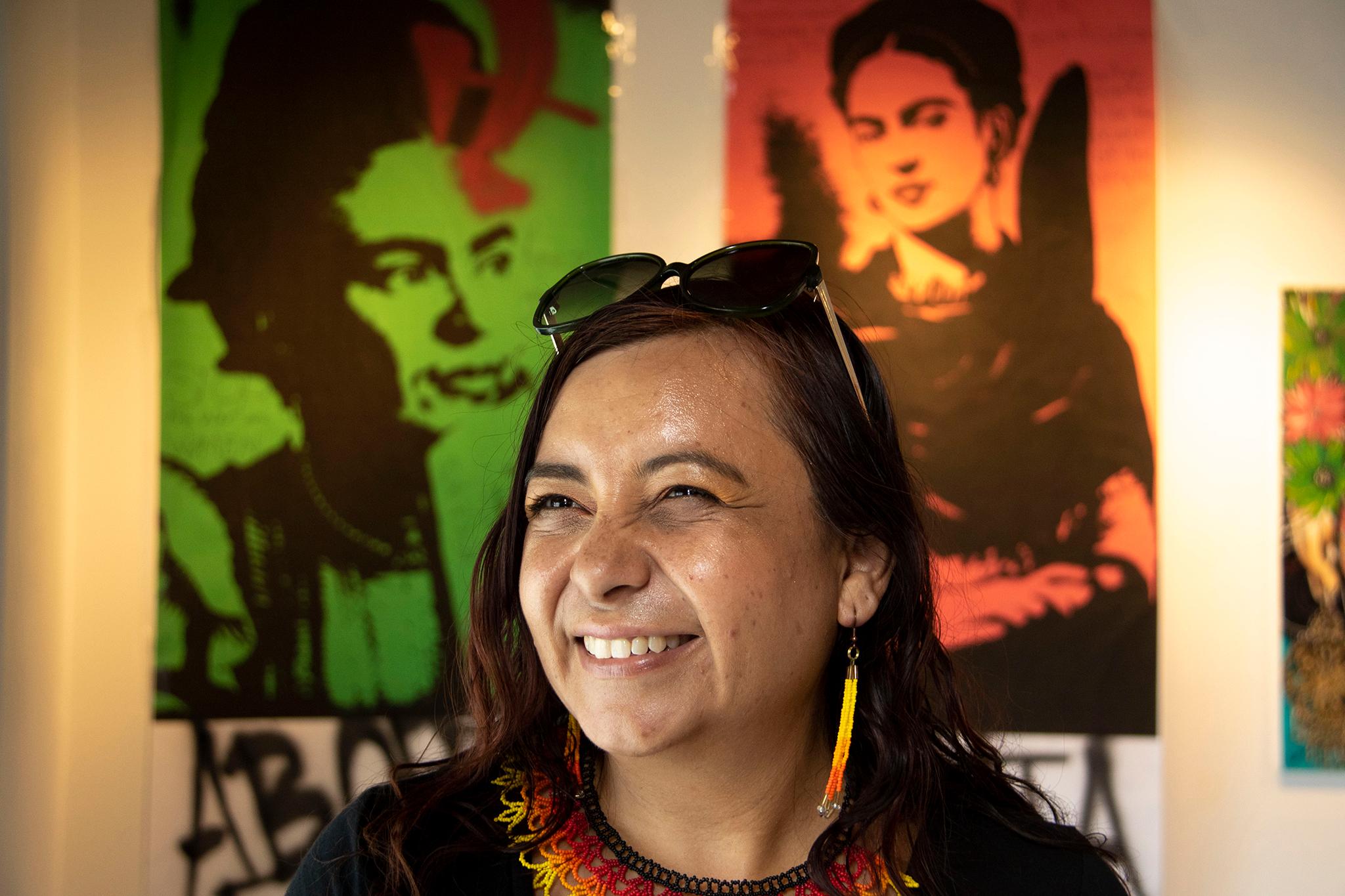Flamboyant floral headpieces, vibrant embroidered huipils and the scrumptious smell of mole adorned Morrison Road in Westwood Saturday afternoon, as Denverites braving the heat gathered for the second "Festival de Mole" event and the 10th annual "Frida Kahlo - A Celebration of Life & Resistance" art show.
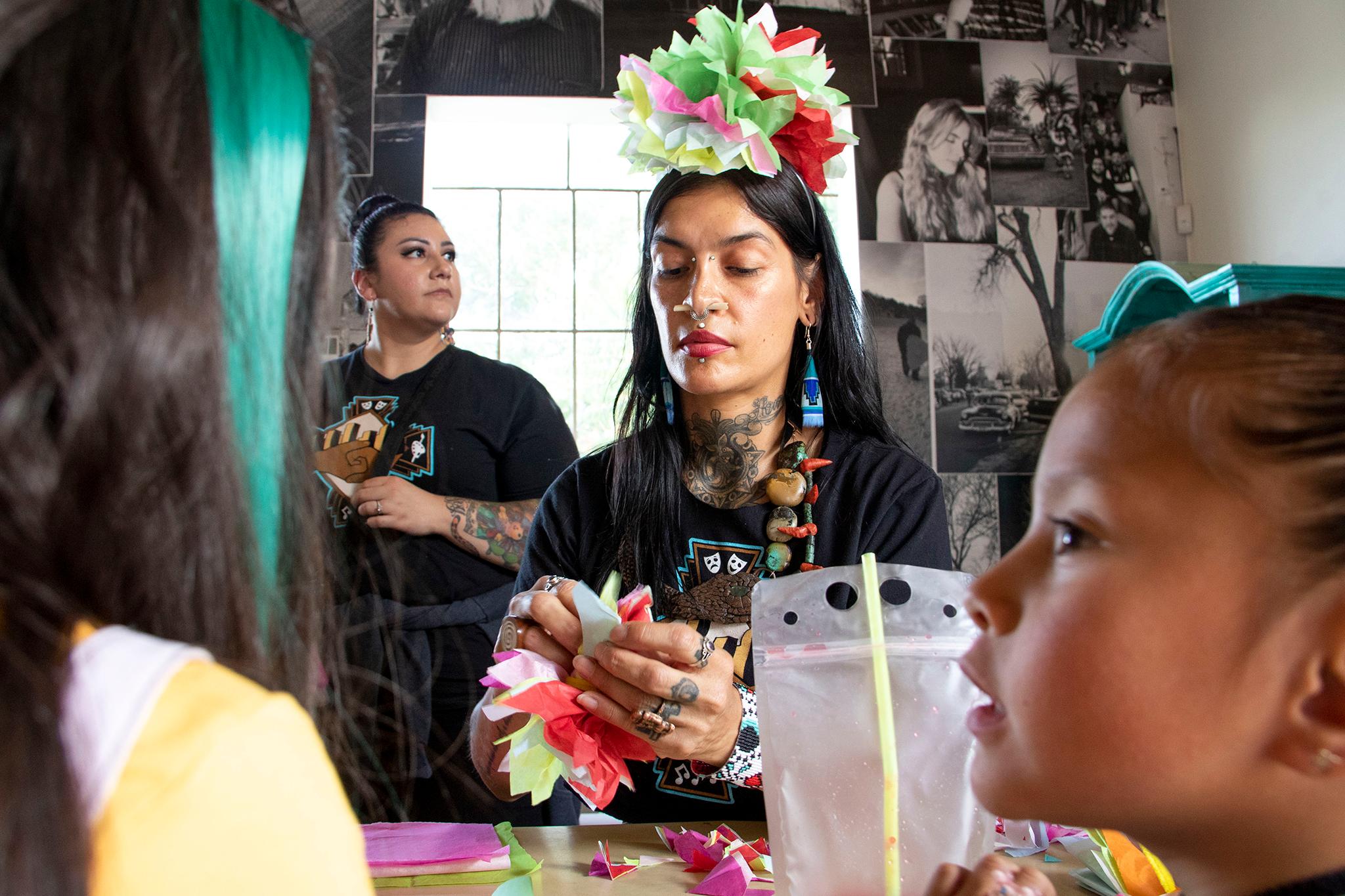
The afternoon Frida festival was founded by resident Mandy Medrano and continued throughout the years by other community leaders, including Santiago Jaramillo of D3 Arts.
"No one was paying attention to Westwood at the time ... so I said let's go into this community center, let's get Frida's cookbook, some art and bring the community together," Medrano said.


This year, alongside D3 Arts, the core planning committee included Servicios de la Raza, Hecho en Westwood, Cultura Chocolate, In Lak'ech Denver Arts, the Office of Councilwoman Torres, and the Westwood Creative District.
"I love Frida. My Tia in California taught me about her at a young age and I've always loved her spirit," Medrano said.
"This became a moment to teach about who Frida was and bring families together. Break bread together. Let's create space for our community. Let's make it authentic. Let's make it for the people and to see this event grow is so beautiful."
For a simple summation, Kahlo was a surrealist Mexican painter whose art focused on gender, class and race through the lens of her experiences pushing gender norms, dealing with the patriarchy and battling with various health issues. Medrano said Kahlo's ideologies and "fighting spirit" resonated with her and Medrano wanted to share Kahlo's ideas with the community.


Jaramillo echoed the sentiment, adding that every year he wants to emphasize Kahlo's political activism and radical artwork.
"We try to bring more of a focus on what Frida stood for and her politics," Jaramillo said. "She was a communist. We have vendors here but we're selective on who we allow to come in here."
Jaramillo said Kahlo's commercialization is a good and bad thing. If people see Frida for solely her unibrow, they're missing the point.
"Frida was a strong and independent Mexicana," Jaramillo said. "She always tried to represent the indigenous people of Mexico. She's been commercialized. A lot of people see her image and think about that Salma Hayek movie, not realizing what she really stood for."
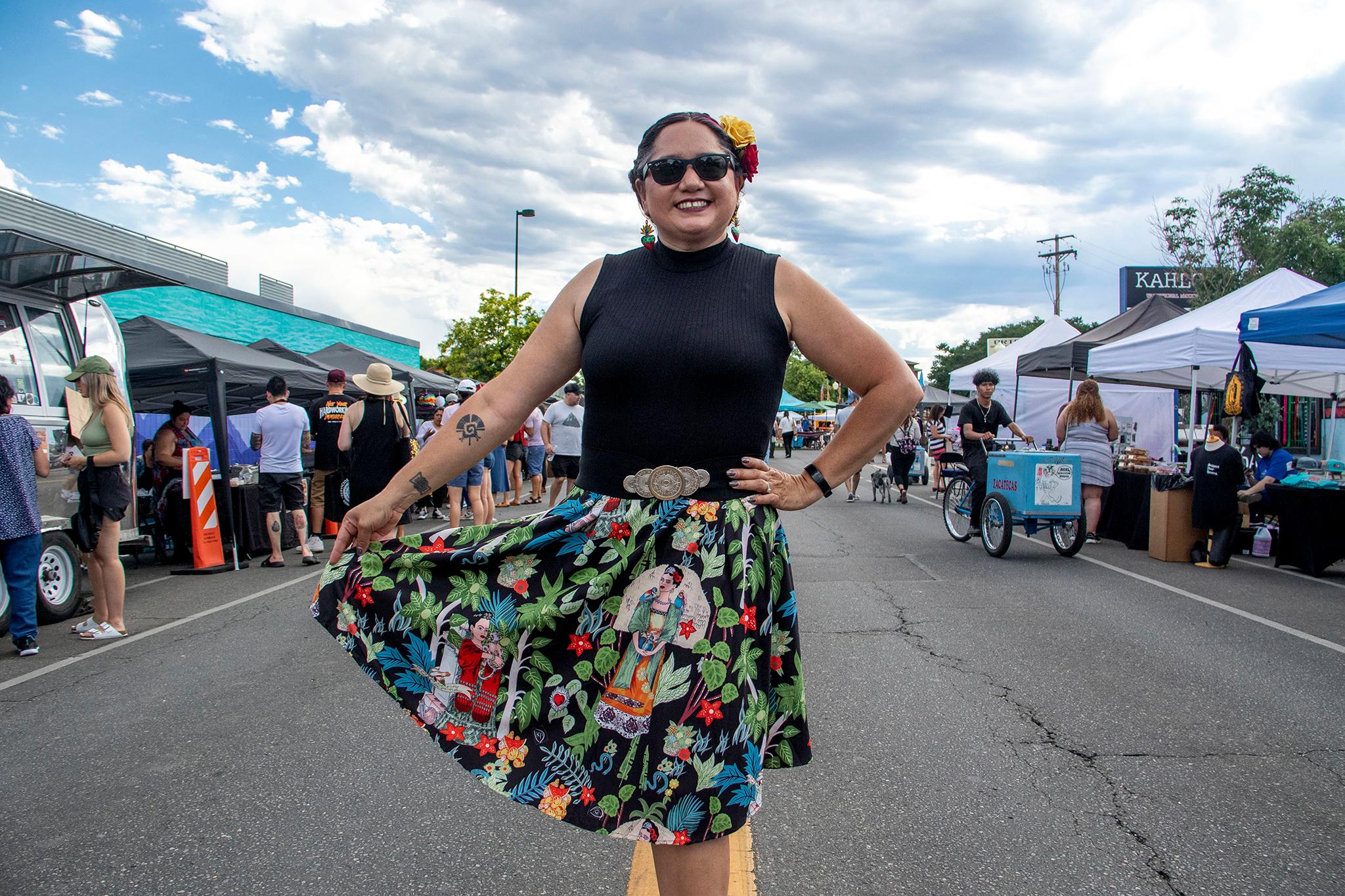
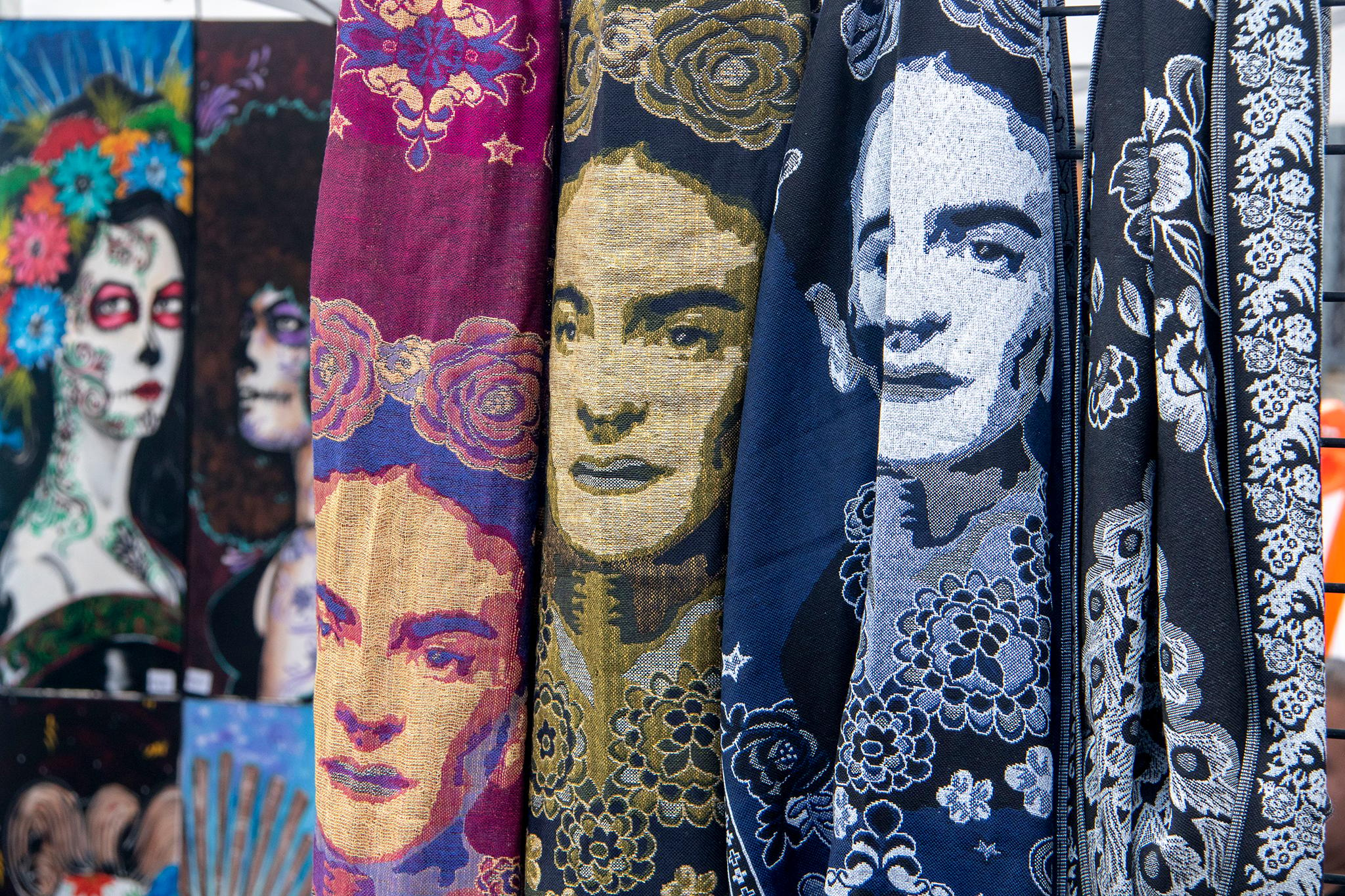
"It's interesting to see the evolution of the Frida train," Charleen Mares said. "For me, Frida represents rebellion."
Mares has worked with Jaramillo and Medrano on the Kahlo art show since its inception. Mares' husband, Jose, is an artist and had a vendor booth at this year's event.
"She grew up in a time when women were expected to take on certain gender roles and even though she was very feminine, she had this edge to her where she wasn't scared to challenge the expectations," Mares said. "So celebrating her in a way that doesn't feel so commercialized is important and Santiago especially does a really good job reminding people of that. Yes, she makes a great t-shirt but she stood for something, like Che [Guevara]. Bringing mole into the festival was really cool because she was such a foodie."
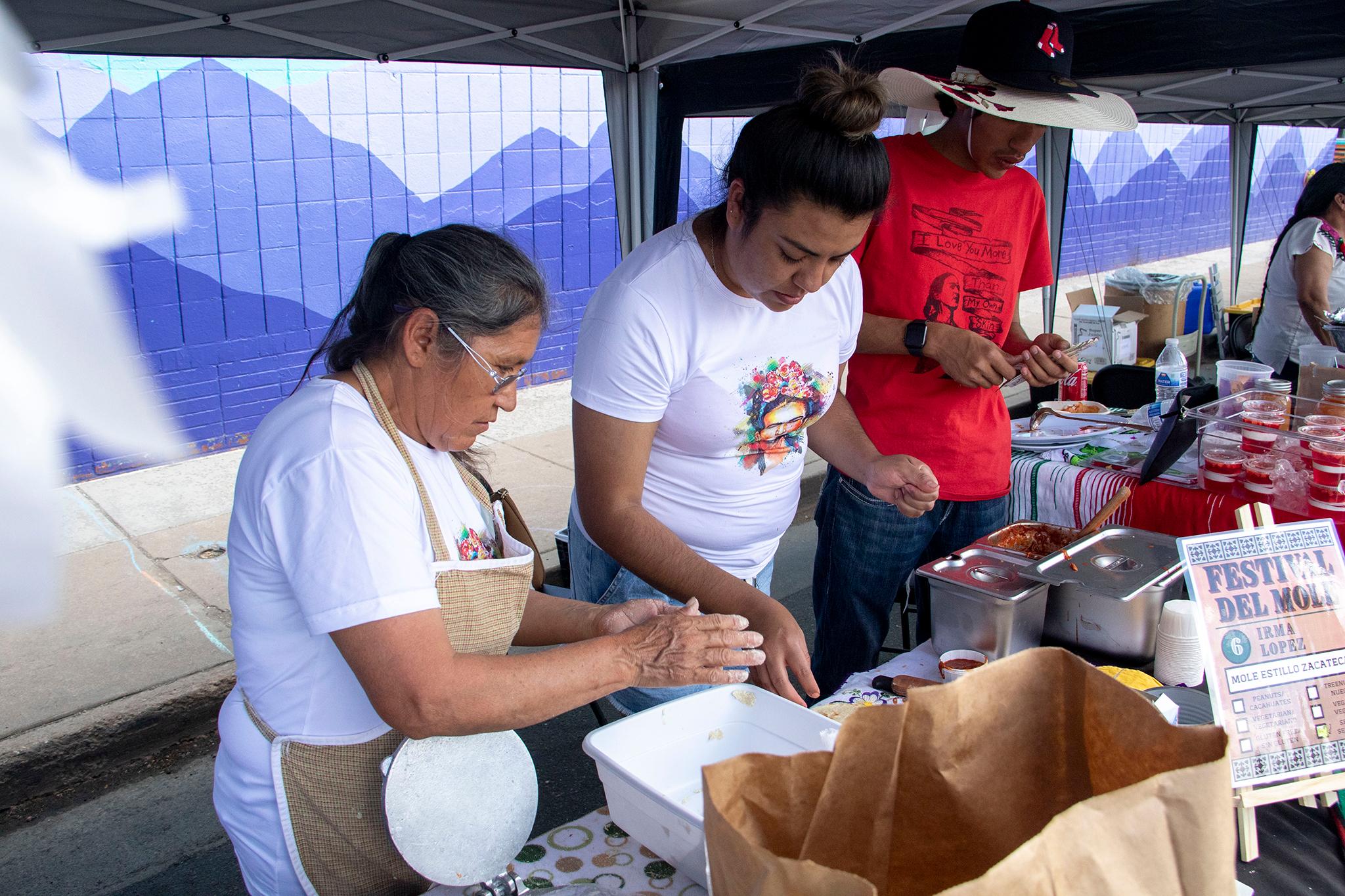
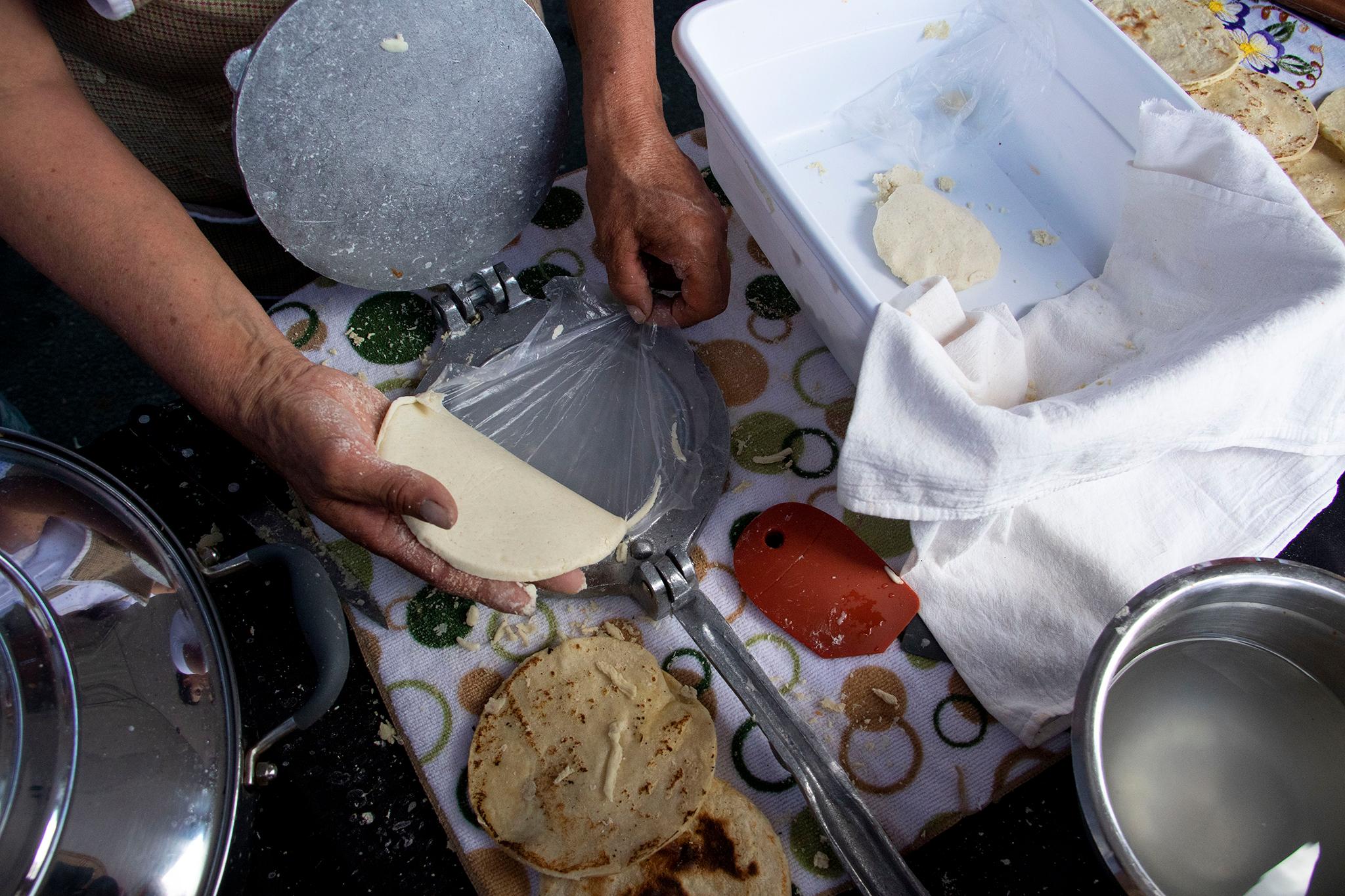
And there was plenty of mole.
Typically the Frida art show occurs inside Re:Vision's Cultural and Arts space. This year's show featured a self portrait exhibit created by 5th through 12th grade students and their families that was put on by Lak'ech Denver Arts.
The show expanded to the street to incorporate "Festival de Mole."
Mole Fest started in 2020 but took a two-year hiatus due to the pandemic. It was also a welcomed addition because Kahlo loved mole. She was known for hosting large dinner parties and her cookbook features several variations of mole.


Jaramillo said mole has indigenous roots and grew to become an important dish in indigenous and Mexican culture. It's a sauce and marinade that starts with one or more types of chili pepper. Kahlo's mole negro from Oaxaca features chihuacle, mulato and pasilla chiles.
From there, the variations are endless. There's poblano mole, green mole, yellow mole, red mole. Mole with dark chocolate. Some mole has no chocolate. There's mole that's best with chicken or mole that's best over vegetables.
At the festival Saturday, Denverites lined up for the 30 different vendors pouring mole on tortillas and chips.

"Mole is everything. Mole represents tradition," said Maribel Arredondo. She runs Curious Paper Art, where she teaches people how to make piñatas and paper mache art.
"I love when people ask me how do you make this? It's an exchange of culture and that's a gift. I love when people ask me about my culture," she said.
Moises Castillo, Courtney Gunn and Catherine Morris were all too excited for the mole. Castillo said mole is "comfort food." Gunn added that she recently moved to the neighborhood and has been thoroughly enjoying the different restaurants.
Besides mole, craft vendors lined Morrison selling handmade earrings and clothing embodying Mexican culture and featuring some Kahlo imagery. Grupo Tlaloc, Denver's oldest Mexica/Aztec dance group, started off the festivities and Kalpulli Mikakuikatl closed out the event. There was a Lucha Libre ring and plenty of paleta carts chiming their bells all along the blistering asphalt.


Felicia Medina, Justius Contreras and Aidan Mejia started with the paleta's since it was so hot out.
Medina said overall the event was about celebrating culture, supporting local businesses and, like Medrano said, breaking bread with strangers.


Medina said food brings everyone together and from there they can immerse themselves into each other's cultures, whether that's by buying beaded earrings, learning about political figures or eating mole.
"It's nice to come out and support," Medina said. "Even if it's just checking them out and grabbing a card and sharing it with your friends.
"That's how you build community. The event mostly talked about mole, so we're like I want some mole. Then everyone comes down and you get to be involved in other things. It's about time we learn about each other instead of hating each other and food helps with that. Sometimes you don't have anything to share but literally some bread and it's important to want to sit down and share that with someone."


In September, Morrison Road will be filled with Denverites again for Westwood's annual Chile Fest. This year the event is part of the West Denver Rising Initiative's international marketplace series, which will include five events across west Denver celebrating the area's various cultures.

